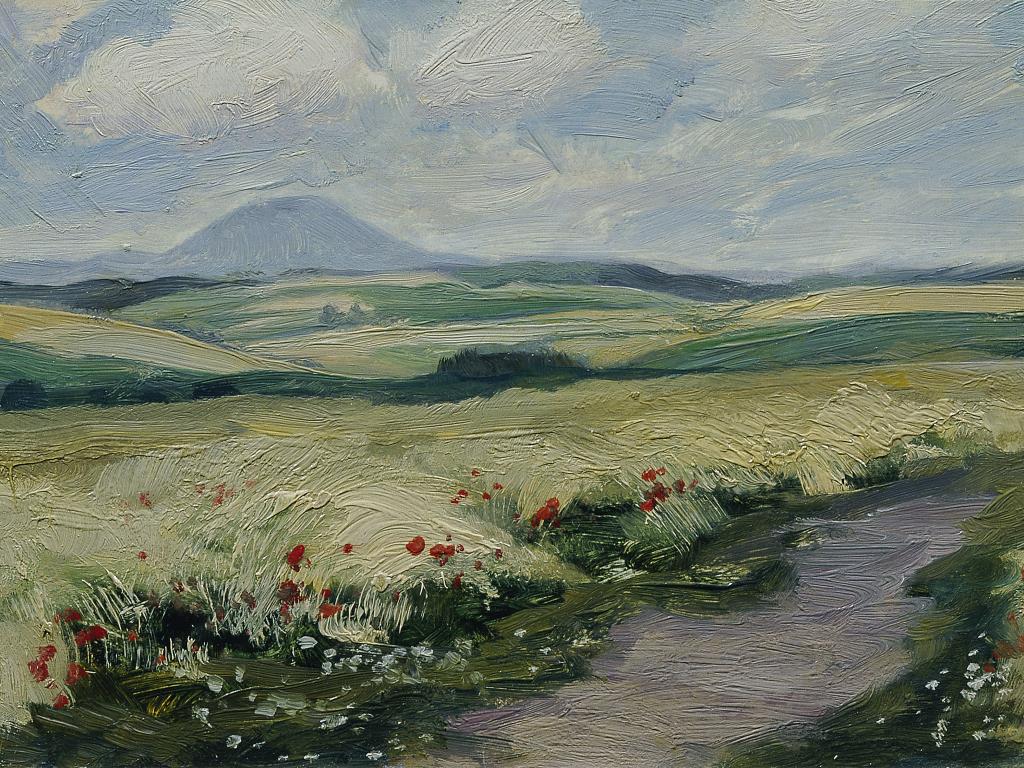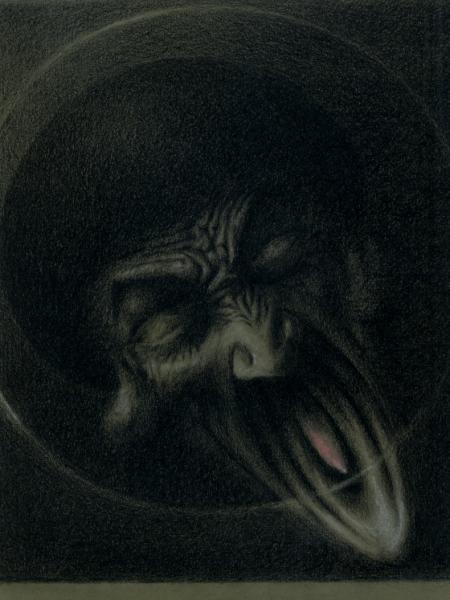
In the first poem of the outstanding Czech Symbolist cycle, A vengeful cantilena (Mstivá kantilena, 1898), by Karel Hlaváček (1874-98), a highlight of any Oxford Czech undergraduate's Prelims year, the poet-narrator addresses Manon Lescaut, the heroine of the Abbé Prévost's 1731 novel, Histoire du Chevalier des Grieux, et de Manon Lescaut, and subsequent opera adaptations. He tells her that he is not her 'timid', emasculated abbé, that he has a voice that is 'too hard' and has 'abandoned his comrades and native fields' to come and sing to her.
The poem foregrounds two relationships – between the centre and the periphery and the rural and urban – that have historically underpinned approaches to modernism and form the focus of a research project on modernism in Bohemia funded by the Wiener Anspach Foundation that I have just started with Petra James at Université Libre de Bruxelles. In the centre-periphery model, modernism is generated in certain centres and then copied in peripheries, while in what Raymond Williams describes as a the 'metropolitan' narrative of modernism, the rural is perceived as anachronistic, antithetical, even embarrassing to conceptions of modernity in art. Our research reflects a current sense in scholarship, not limited to 'peripheral modernisms', that these narratives homogenize contexts and exclude or marginalize vital aspects of artistic creation and debate, producing a partial, distorted understanding of modernism certainly in the Czech case.

The narrator's address to Manon in Hlaváček's poem dramatizes the dialogue with French/European culture of which Hlaváček's Czech contemporaries dreamed. The imagined interlocutor, however, never answers; indeed, by the end of the sixteen lines, Manon is already looking elsewhere for someone to relieve her boredom. With his rough-voiced barbarian poet coming from the eastern countryside, Hlaváček mocks contemporaneous French anxieties about primitive peripheries like the Slavs ravaging high French culture. Later in the cycle he suggests that the Czech poets only look barbarian, but underneath are civilized and therefore pose little threat. Petra James suggests in a forthcoming article that 'peripheral' Czech fin-de-siècle intellectuals desired an international conversation or community based on ideas, rather than national stereotypes and prejudices, and we might therefore argue that they were more aware of and sincere about global modernism than their 'central' counterparts.
Hlaváček's poet-narrator does not present himself as passive or submissive, a borrower or imitator, but believes he has something to offer to an understanding of modernity. He tells Manon, a symbol of the centre, that while her fashionable ennui derives from excess, his own – the periphery's – derives from hunger, the lack of a Czech-language culture and what Hlaváček and his generation considered the failure of attempts to grow one. Our research will highlight the less well-understood mutual interest and interaction between European modernist peripheries (notably, for us, Bohemia and Belgium), which considered themselves more or differently equipped to appreciate one another's approaches than the centre. It will also show how even an apparently widespread international interest in a particular periphery, like Scandinavia, masked different motives for, say, the French, Germans or Czechs. For Czechs, Scandinavia, with its international profile, constituted a model to follow, but it also served as a counterweight to urban-centred notions of modernism that seemed inadequate to the Bohemian context.
By abandoning 'his comrades and native fields' to speak Manon's language, Hlaváček's narrator asserts a break with the essentially Herderian, rurally centred, mythopoeic nationalism that had dominated preceding generations of Czech-language literature. In the first decades of the twentieth century, the period between Czech Decadence and the Avant-garde, we see a repudiation of that gesture of abandonment and a reassertion of the rural as a source of healing and recovery in works like The Ratcatcher (Krysař, 1913) by Viktor Dyk (1877-1931) and Puppets and workers of God (Loutky a dělníci boží, 1916), the only novel by the pre-eminent critic and voice of Czech modernism, F.X Šalda (1867-1937). In Dyk's novelization of the story of the Pied Piper, the rat-catcher is a metaphor for the Hamlet-like Decadent poet, who only knows how to destroy, and contrasts with the local fisherman, a mental version of the limping boy, who is left at the end to seek a mother to nurse an infant that has survived the devastation. By 1925, so-called Ruralist writers had set themselves up as opponents of the Avant-garde's self-appointed metropolitan monopoly on aesthetics and conceptions of the human being. The title of their journal, North and East, reflected not only their own origins working the unforgiving farmland of north-east Bohemia, but also their assertion that Czech identity lay not in imitating alien sun-kissed Romance cultures, but in rugged northern and eastern Europe.
Our work will explore the negotiation of the place of the natural and rural in Czech literary theory and practice in the decades between Symbolism and the Avant-garde, a period arguably of attempted syntheses between periods of polarization, when, as Josef Vojvodík suggests in the most recent major study of Czech modernism between 1905 and 1923, alternative paths were either not pursued or omitted from subsequent accounts. We plan through workshops in Brussels and Oxford in 2022 and 2023 to reach beyond our own interests in Czech literature to other art forms and national contexts, both peripheral and central. The Ruralists mocked the Prague coffee-house habits of the Avant-garde, who objected to the Ruralists coming into the café in their muddy boots, but in our research the soil and grounds will definitely mix.